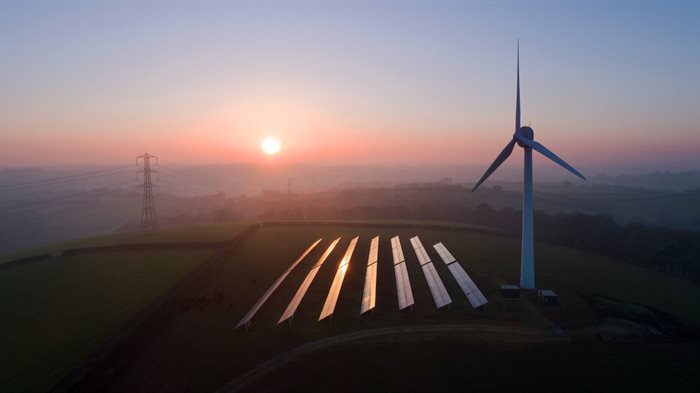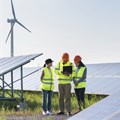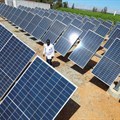#AfricaMonth: Renewable energy deployment and the need for increased investment in Africa

The foundation, together with Enel Green Power, publishes the Connecting the Dots series which focuses on the progress of renewable energy development in Africa. Guzzo unpacked some of the findings from the various reports which so far have covered Africa, the Middle East & North Africa (MENA), and West Africa.
Africa's population is rapidly rising and countries will need to provide more and more new services to meet growing demand, noted Guzzo. Access to electricity, however, remains fragmented, affecting everyday basic services as well as the business environment.
"Outages are causing economic losses to companies in the order of 2% of annual GDP. So it's an incredible amount of loss for these businesses, just due to the inefficiency of the provision of electricity," said Guzzo. He highlighted that sub-Saharan Africa experiences an average of 60 hours of outages each month, compared to half an hour in OECD countries and 37 hours in India.
Africa's abundant natural resources
While the continent is rich in fossil fuels, in the context of climate change and achieving the 2°C scenario, most of these resources would have to remain unexploited, said Guzzo. "For example, we see that in the MENA region, half of the gas resources, one-third of the oil resources, and 80% of coal resources should remain unexploited. This implies, of course, a complete shift in the economies of these countries ... especially in the Gulf."
Africa is also endowed with the minerals needed for renewable energy technologies, "so the positioning of African countries within the green transition will be fundamental to understand in which direction the green transition will go", he said. Zambia, for example, provides 10% of the global supply of copper which is used in wind, solar and electrical vehicles.
Highlighting the opportunity for job creation, Guzzo noted that global employment in the renewable energy sector rose from 7 million in 2012 to more than 12 million in 2021. In Africa, however, only 2.4% of people are currently working in the renewable energy sector.
High perceived investment risk
Focusing on renewable energy investments on the continent, Corvaglia highlighted that between 2010 and 2020, only 2% of the global renewable energy additions happened in Africa, reaching only 53GW of renewable energy installed in 2020.
She noted that while Africa has significant renewable energy resources potential, development has been limited partly due to a high perceived investment risk driven by political and institutional instability, a lack of clear policy and regulatory frameworks, poor transparency and weak macroeconomic conditions.
Corvaglia said that another important thing to note is that foreign direct investment accounted for around half of the total investments that have been made in Africa, while the global average is only 6%. "This means that the continent is highly reliant on foreign investment," she said.
Renewable energy investment targets
To meet Africa's renewable energy capacity targets in the short term, an investment of $20bn per year is needed - more than three times what was achieved in the past decade, noted Corvaglia. In the longer term, to limit global temperature rise to 1.5°C, an estimated required investment of $16bn per year is needed. Not only do investments in renewables have to increase, but also investments in non-renewable energy - thermal energies - will have to decrease, she highlighted.
RES4Africa's upcoming lab, scheduled for Wednesday, 17 May, will cover an analysis of the regulations and policies of African electricity markets. For more information, click here.









